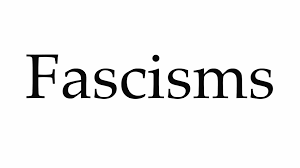 Jeremy was a dandy. At a time when young men were going hippie—growing their hair long, wearing faded, ripped blue jeans with western or tie-dyed shirts, buckskin or Edwardian vests and sandals or cowboy boots—Jeremy wore sharply pressed pleated dark slacks, pastel dress shirts with smart cardigan sweaters highlighted by the occasional ascot, and black or brown wingtips. This was 1970 and I was just such a wannabe hippie when I boarded the local Ventura city bus to sit down next to Jeremy. He sniffed in disdain at my unruly appearance and went back to writing in his notebook.
Jeremy was a dandy. At a time when young men were going hippie—growing their hair long, wearing faded, ripped blue jeans with western or tie-dyed shirts, buckskin or Edwardian vests and sandals or cowboy boots—Jeremy wore sharply pressed pleated dark slacks, pastel dress shirts with smart cardigan sweaters highlighted by the occasional ascot, and black or brown wingtips. This was 1970 and I was just such a wannabe hippie when I boarded the local Ventura city bus to sit down next to Jeremy. He sniffed in disdain at my unruly appearance and went back to writing in his notebook.
“I’m on the Prom Committee,” he said, holding his pen in the air between thumb and forefinger. “We’re developing the theme for this year’s Prom. What do you think about ‘a taste of bittersweet’?”
I had no school spirit nor had I plans to attend my high school prom so I simply shrugged. Jeremy was a walking contradiction. Everybody knew he was gay even though he was not out. He was overtly Catholic however and always wore a silver crucifix with a finely tooled image of the bloodied Jesus around his neck. Michael boarded the bus the next stop and sauntered back to where we sat. Michael was a year older and now a freshman at UC Santa Barbara where he had participated in the Isla Vista student riots that burned down the Bank of America. He wasn’t just a shaggy hippie but also a burgeoning New Leftist like myself. Michael and Jeremy despised each other. So while Michael and I chatted, Jeremy and Michael ignored each other. Then Michael happened to mention he “planned to hitchhike around Europe in the summer.”
“Spain is quite lovely, although a tad hot in the summertime,” Jeremy feigned a casual air. “I visited Spain last summer for an Opus Dei retreat and I had such a wonderful time.”
 Continue reading →
Continue reading →
October 1, 2022
Categories: "Lefty" Hooligan, "What's Left?", 1960s, 1968, 1970s, bourgeoisie, capitalism, Che Guevara, CNT/FAI, European Union, fascism, Hitler, Italy, Leninism, Marxism-Leninism, National Anarchism, national liberation, nationalism, Nazi Germany, Politics, revolution, Russia 1917, Russian Revolution, socialism, Soviet Union, Spain 1936-39, Third Positionism, Third World, utopia, working class . Tags: "left-fascism", "Lefty" Hooligan, "What's Left?", 1943 Manifesto of Verona, 1960s, 1968, 1970s, Alceste de Ambris, anarchism, Arditi, ” Franco’s “New Spain”, Blackshirt (squadristi) paramilitaries, bourgeoisie, capitalism, CasaPound Italia (CPI), Charter of Carnaro, Che Guevara, Christian Bouchet, CNT/FAI, Corridoni, D’Annunzio, Ernst Röhm, European Union, Ezra Pound, Fasci Siciliani dei Lavoratori (Sicilian Workers Leagues), fascism, Fascist Italy, Führer, Fiume, Franco’s Spain, Gabriele D’Annunzio, Gentile, Giorgia Meloni’s Brothers of Italy party, Gleichschaltung, Guernica, Hitler, Hugo Chavez, Italian Social Republic, Italy, Le Pen’s National Front, Leninism, Leszek Kolakowski, Marxism-Leninism, Mazzini, Milton Friedman, Mouvement Nationaliste Révolutionnaire (MNR), Movimiento Nacionalista Revolucionario (MNR) in Peru, Mussolin, National Anarchism, National Autonomism, National Fascist Party, National Socialism, national syndicalism, National-Bolshevism, nationalism, nationalist revolution, Nazi Germany, Nazi Party, New Left, Night of the Long Knives (Operation Hummingbird), Nouvelle Résistance (NR), old Left, Opus Dei, Pavolini, Pinochet’s Chile, Politics, Republic of Salò, revolution, Rino Gaetano. Fabrizio De André, Roger Griffin, Russia 1917, Russian revolution, Salazar’s “New State, Salazar’s Portugal, social democracy, socialism, Soviet Union, Spain 1936-39, Strasser brothers, syndicalism, Third Positionism, Third World, Third World national liberation struggles, ultra nationalism + populist socialism + palingenesis = fascism, utopia, working class . Author: leftyhooligan . Comments: Leave a comment
 Jeremy was a dandy. At a time when young men were going hippie—growing their hair long, wearing faded, ripped blue jeans with western or tie-dyed shirts, buckskin or Edwardian vests and sandals or cowboy boots—Jeremy wore sharply pressed pleated dark slacks, pastel dress shirts with smart cardigan sweaters highlighted by the occasional ascot, and black or brown wingtips. This was 1970 and I was just such a wannabe hippie when I boarded the local Ventura city bus to sit down next to Jeremy. He sniffed in disdain at my unruly appearance and went back to writing in his notebook.
Jeremy was a dandy. At a time when young men were going hippie—growing their hair long, wearing faded, ripped blue jeans with western or tie-dyed shirts, buckskin or Edwardian vests and sandals or cowboy boots—Jeremy wore sharply pressed pleated dark slacks, pastel dress shirts with smart cardigan sweaters highlighted by the occasional ascot, and black or brown wingtips. This was 1970 and I was just such a wannabe hippie when I boarded the local Ventura city bus to sit down next to Jeremy. He sniffed in disdain at my unruly appearance and went back to writing in his notebook.











